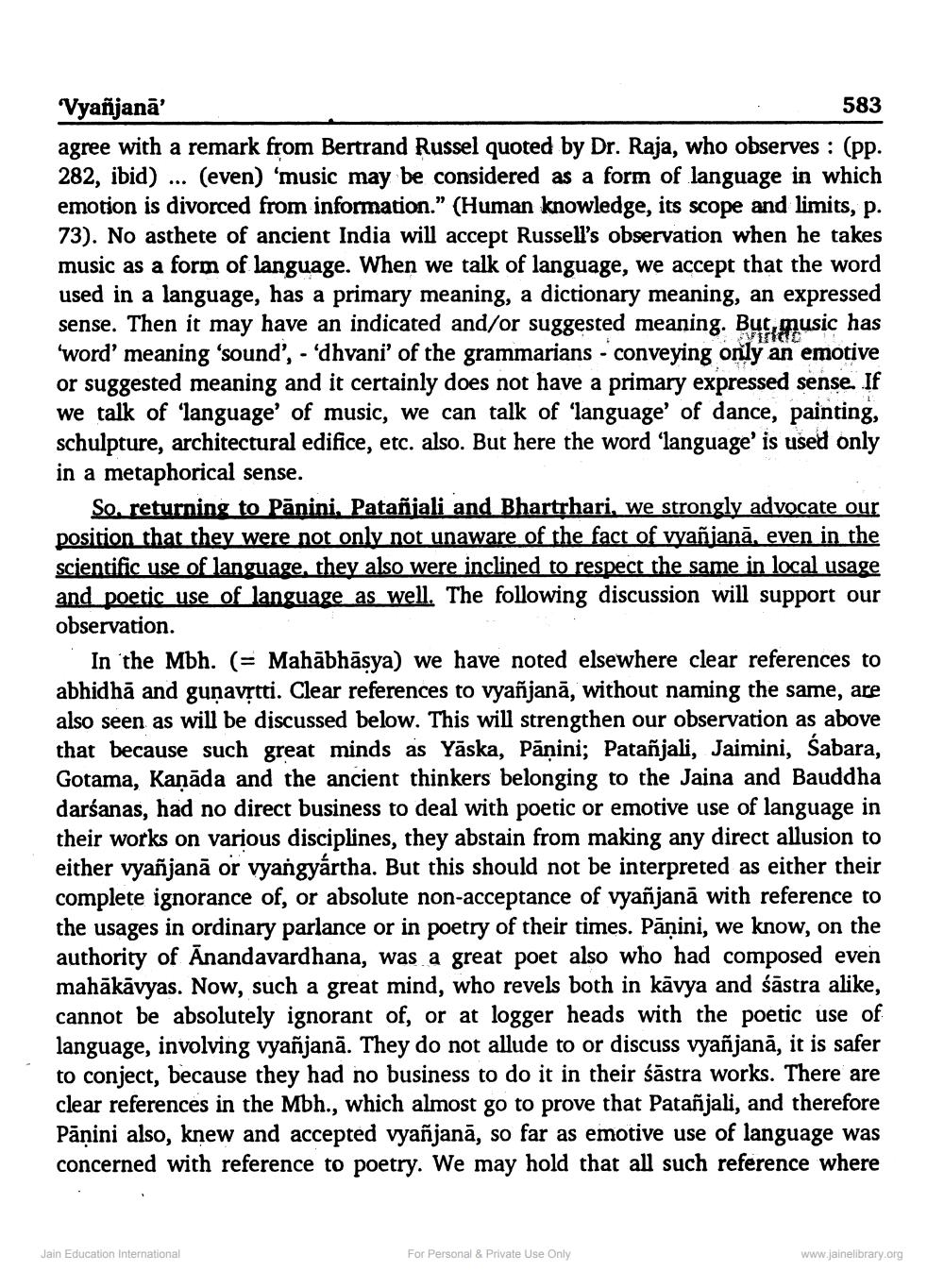________________
Viri
Vyañjana'
583 agree with a remark from Bertrand Russel quoted by Dr. Raja, who observes : (pp. 282, ibid) ... (even) 'music may be considered as a form of language in which emotion is divorced from information.” (Human knowledge, its scope and limits, p. 73). No asthete of ancient India will accept Russell's observation when he takes music as a form of language. When we talk of language, we accept that the word used in a language, has a primary meaning, a dictionary meaning, an expressed sense. Then it may have an indicated and/or suggested meaning. But, music has 'word' meaning 'sound', - 'dhvani' of the grammarians - conveying only an emotive or suggested meaning and it certainly does not have a primary expressed sense. If we talk of 'language of music, we can talk of 'language of dance, painting, schulpture, architectural edifice, etc. also. But here the word 'language' is used only in a metaphorical sense.
So, returning to Pānini, Patañjali and Bhartrhari, we strongly advocate our position that they were not only not unaware of the fact of vyañjanā, even in the scientific use of language, they also were inclined to respect the same in local usage and poetic use of language as well. The following discussion will support our observation.
In the Mbh. (= Mahābhāsya) we have noted elsewhere clear references to abhidh, and gunavrtti. Clear references to vyañjanā, without naming the same, are also seen as will be discussed below. This will strengthen our observation as above that because such great minds as Yāska, Pāṇini; Patañjali, Jaimini, Śabara, Gotama, Kanāda and the ancient thinkers belonging to the Jaina and Bauddha darśanas, had no direct business to deal with poetic or emotive use of language in their works on various disciplines, they abstain from making any direct allusion to either vyañjanā or vyangyártha. But this should not be interpreted as either their complete ignorance of, or absolute non-acceptance of vyañjanā with reference to the usages in ordinary parlance or in poetry of their times. Pānini, we know, on the authority of Anandavardhana, was a great poet also who had composed even mahākāvyas. Now, such a great mind, who revels both in kāvya and śāstra alike, cannot be absolutely ignorant of, or at logger heads with the poetic use of language, involving vyañjanā. They do not allude to or discuss vyañjanā, it is safer to conject, because they had no business to do it in their śāstra works. There are clear references in the Mbh., which almost go to prove that Patañjali, and therefore Pāṇini also, knew and accepted vyañjanā, so far as emotive use of language was concerned with reference to poetry. We may hold that all such reference where
Jain Education International
For Personal & Private Use Only
www.jainelibrary.org




